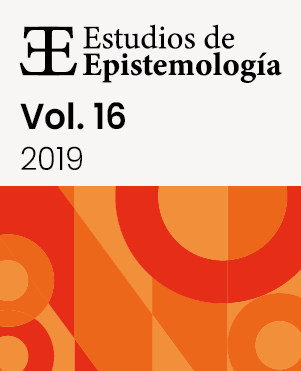The philosophical consequences of the saying/showing dichotomy in the Tractatus logico-philosophicus

Published 2019-03-01
Keywords
- Wittgenstein,
- saying/showing,
- Tractatus logico-philosophicus,
- referentialism,
- analytical philosophy
How to Cite

This work is licensed under a Creative Commons Attribution-NonCommercial-NoDerivatives 4.0 International License.
Abstract
This paper analyzes the dichotomy saying/showing that Ludwig Wittgenstein uses in his first work, the Tractatus logico-philosophicus. The specific study of this conceptual couple shows the paramount role of the Viennese thinker in the philosophy of language and contemporary analytical philosophy. By using Wittgenstein's own text and his commentators, it is noted how this dichotomy allows one to enter the deepest concepts of the first Wittgenstein, developing the ideas of meaning, truth, the limits of the world and the object of philosophy. Finally, the article gives an account of the relevance that holds this distinction in language for philosophical studies.
